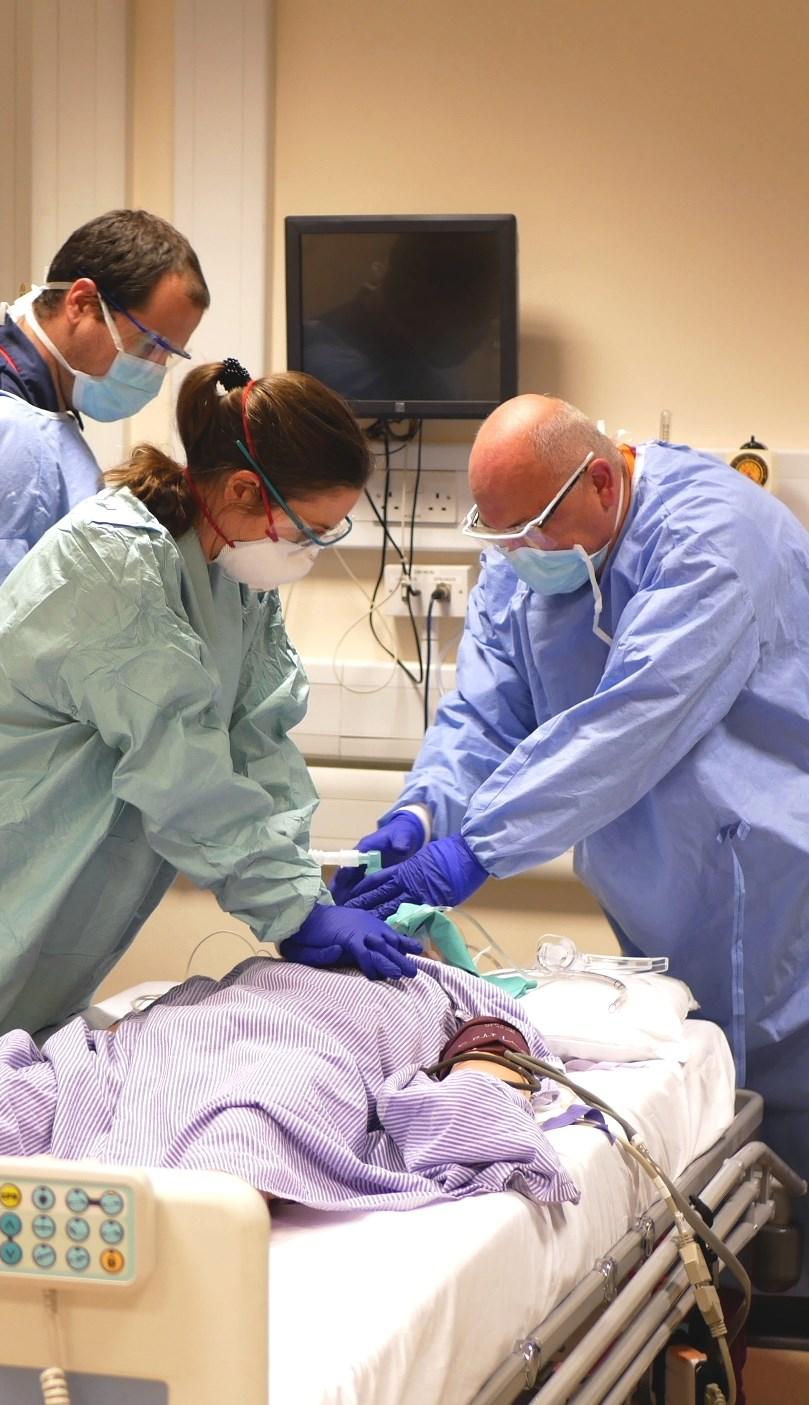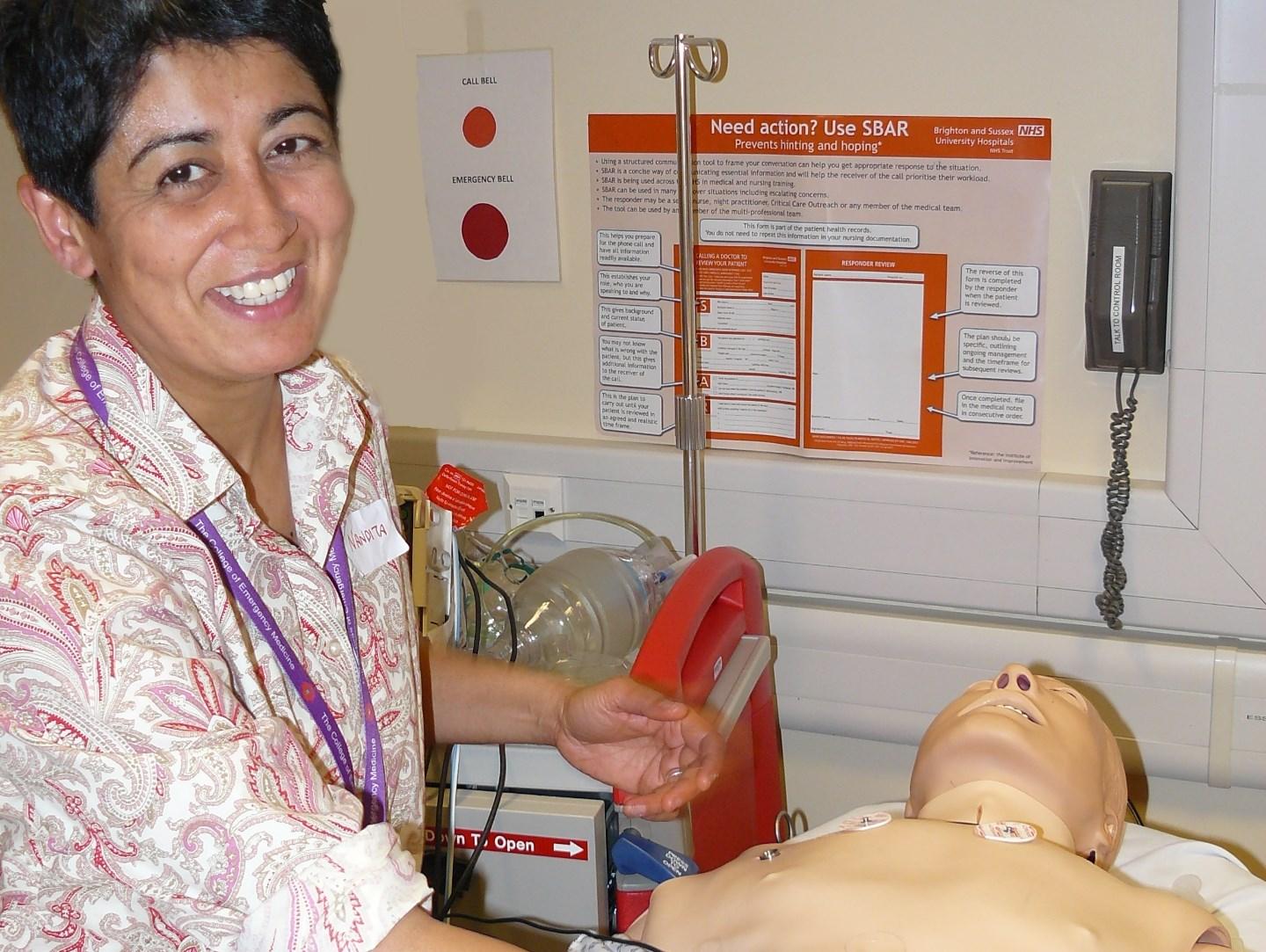
6 minute read
Core Programmes Acute Care Common Stem
ACUTE CARE COMMON STEM
Acute Care Common Stem is a two-year programme which covers the acute specialties of anaesthesia, acute medicine (general internal), emergency medicine and intensive care medicine. The ACCS programme is an alternative route into anaesthesia and acute medicine instead of core anaesthesia or core medicine training and the only route to enter training in emergency medicine.
Advertisement
The two-year training programme is broken down into four component parts. Trainees complete six months in emergency medicine, acute medicine, anaesthesia and intensive care medicine. The anaesthesia training in ACCS is identi-
PROGRAMME DESIGN
The ACCS programme is designed to reflect acute care clinical practice and focusses on the following areas for 18 of the 24 months:
Major presentations of patients with a core symptom who will need resuscitation; Acute presentations of patients with a core general symptom who are seen in either the Emergency Department, the Intensive Care Unit, the Acute
Medical Ward and those areas where anaesthetics are administered; Airway management (training completed in the anaesthesia component of the programme).
cal to the first six months of training core anaesthesia trainees receive. All trainees must pass the initial assessment of competence in their anaesthesia placement. On completion of the two years ACCS programme, trainees return to their parent specialty for a third year, to meet the entry requirements detailed for Higher Specialty Training.
BSUH trainees will be based in the Emergency Departments of both hospitals, the Royal Sussex County Hospital (RSCH) and the Princess Royal Hospital (PRH). CT1 ACCS trainees will also rotate to Medical Wards and the Medical Assessment Ward in both hospitals.
The first six months ACCS trainees will spend in the Emergency Department or Acute Medicine where as the second year will be Anaesthetics and ICM. The more acute aspect of emergency work can be experienced in the resuscitation
ACUTE CARE COMMON STEM
room and time in the Medical Assessment Unit where trainees will see and assess GP admissions and regularly undertake ward rounds with the Acute Assessment Medical team.
The training period in Acute Medicine currently split into 3 months in Acute Medical Unit and 3 months in the Emergency Ambulatory Care Unit will give a broader picture of life behind the acute floor, with insight into clinics and ward rounds and interaction with other medical specialties. The CT2 year consists of nine months Anaesthetics and three months Intensive Care –aiming to move towards a six months split each by 2021 as per Royal College of Anaes-

thetists recommendations. There is a huge range of cases to be seen in the Emergency Department, making it uniquely valuable in training for all hospital specialties as well as General Practice. Trainees also benefit from the opportunity to work with a wide range of other health care professionals such as psychiatry, GPs and ENPs.
The ACCS curriculum is delivered through trainee led, protected weekly teaching sessions which is two hours a week for EM and equivalent for Acute Medicine teaching. Weekly Grand Round lectures at the RSCH and monthly Grand Rounds at the PRH complement the teaching programme.
INTERNAL MEDICINE TRAINING
In August 2019 Internal Medicine Training (IMT) replaced Core Medical Training to form the first years of postfoundation training for the main specialties supporting acute hospital care. The programme prepares doctors to become a medical registrar and provides them with the skills needed to manage patients presenting with a wide range of general medical symptoms and conditions. At BSUH there is the opportunity to do rotations in a wide range of medical specialties including Oncology, Renal Medicine, Neurology, Cardiology, Stroke Medicine, Gastroenterology, Haematology, Infectious Diseases, Dermatology, Endocrinology, Respiratory Medicine and Palliative Care.
Most rotations include participation in the acute medicine rota which involves clerking on the acute medical take in ED and RAMU/ EACU. Each rotation is four months long and all programmes include rotations in Intensive Care Medicine and Geriatrics. Training is split across both sites.

Within each rotation there is plenty of opportunity to carry out the required work placed based assessments. Holistic decisions on progress will be made for the fourteen high level capabilities in practice (CiPs) using the professional judgement of appropriately trained, expert assessors. During IMT trainees

INTERNAL MEDICINE TRAINING
WHAT OUR TRAINEES SAY Dr Emma Coleman

I moved to Brighton to start my Internal Medicine Training because BSUH offers a broad range of rotations for medical training, which specifically appealed to me.
There is a good mix of DGH style work at the Princess Royal Hospital (PRH) as well as the opportunity to work in tertiary level specialties. Within RAMU/ EACU there has been plenty of opportunities to improve my procedural skills with regular pleural clinics for chest drains as well as ascitic drains.
There has recently been an overhaul in the way our medical rotas have been
must complete the full MRCP (UK) Diploma and there is locally organising teaching to assist with this. There are 2 training pathways in IMT: Group 1 specialities and Group 2 specialties. For Group 1 specialties (the vast majority of specialties; aiming for Dual CCT), IMT is 3 years, for Group 2 specialities (single CCT), IMT is 2 years.
PRH
There is a Department of Medicine Clinical Meeting on Wednesday at 2pm and on the last Wednesday of the month there is a M&M meeting. Curriculum based IMT teaching is on Friday at 1pm. And the Grand Round takes place on the last Friday of each month.
designed which has meant we now have a dedicated ‘Clinic Week’ allowing us to attend far more clinics of our choosing, which has been great for both education and the e-portfolio requirements. All of our allocated study leave (30 days across the year) is also factored into our rota, allowing us far better protection of our study days.
Working at a teaching hospital, I have been heavily involved in teaching medical students. I have also developed and organised a teaching programme for the new interim foundation doctors. I have thoroughly enjoyed working on the programme and the project team decided to submit a paper on it to one of the national Medical Education conference.
Brighton is a great place to live with the beach at your doorstep and the South Downs in easy reach. There are a huge number of restaurants and pubs to enjoy outside of work, which I am still working my way through.
RSCH
Curriculum based IMT teaching takes place each Monday between 1pm and 2pm in the AEB. The programme covers the GIM curriculum and is led by the various specialty consultants.
There is a Clinical Hot Cases session on Thursdays at 1pm and the Medical Grand Round is on Wednesday at 1pm. On Thursday at 8.30am there is a morning report discussion.
In addition to these educational opportunities, each department offers its own training activities. There are also regional IMT teaching days held by KSS at various hospitals within the deanery.










